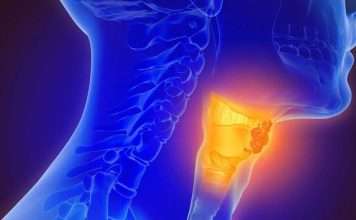Throat cancer is a potentially life-threatening disease that can have a devastating impact on individuals and their loved ones, often resulting in premature death.
To protect against this disease, it’s essential to address the following three key risk factors:
1. Tobacco Use (Responsible for 80-90% of throat cancer cases): Smoking and chewing tobacco are leading causes of throat cancer, containing over 70 known carcinogens that can damage the cells lining the throat, leading to cancerous growths. Quitting tobacco in any form can greatly reduce the risk of developing throat cancer and improve overall health and wellbeing, with the risk of throat cancer decreasing by 50% within five years of quitting.
2. Alcohol Consumption (Responsible for 20-30% of throat cancer cases): Heavy alcohol consumption is another significant risk factor for throat cancer, as alcohol can irritate and damage the cells in the throat, increasing susceptibility to cancer. Limiting alcohol intake, especially in combination with tobacco use, is crucial for reducing the risk of throat cancer, with the risk decreasing by 30% for every one-drink reduction per day.
3. HPV Infection (Responsible for 10-20% of throat cancer cases): Human papillomavirus (HPV) infection, particularly certain high-risk strains (such as HPV 16 and 18), is linked to an increased risk of throat cancer. Practicing safe sex and getting vaccinated against HPV can lower the likelihood of contracting the virus and developing related cancers, with the HPV vaccine proven to be 90% effective in preventing HPV-related diseases.
By avoiding or minimizing these three risk factors – tobacco use, excessive alcohol consumption, and HPV infection – individuals can significantly reduce their chances of developing throat cancer.
Regular screenings and early detection also play essential roles in improving outcomes for those at risk, with early detection increasing the five-year survival rate by 50%.
By taking proactive steps to address these risk factors and seeking regular medical check-ups, individuals can protect their health and wellbeing, and reduce the risk of this devastating disease.
